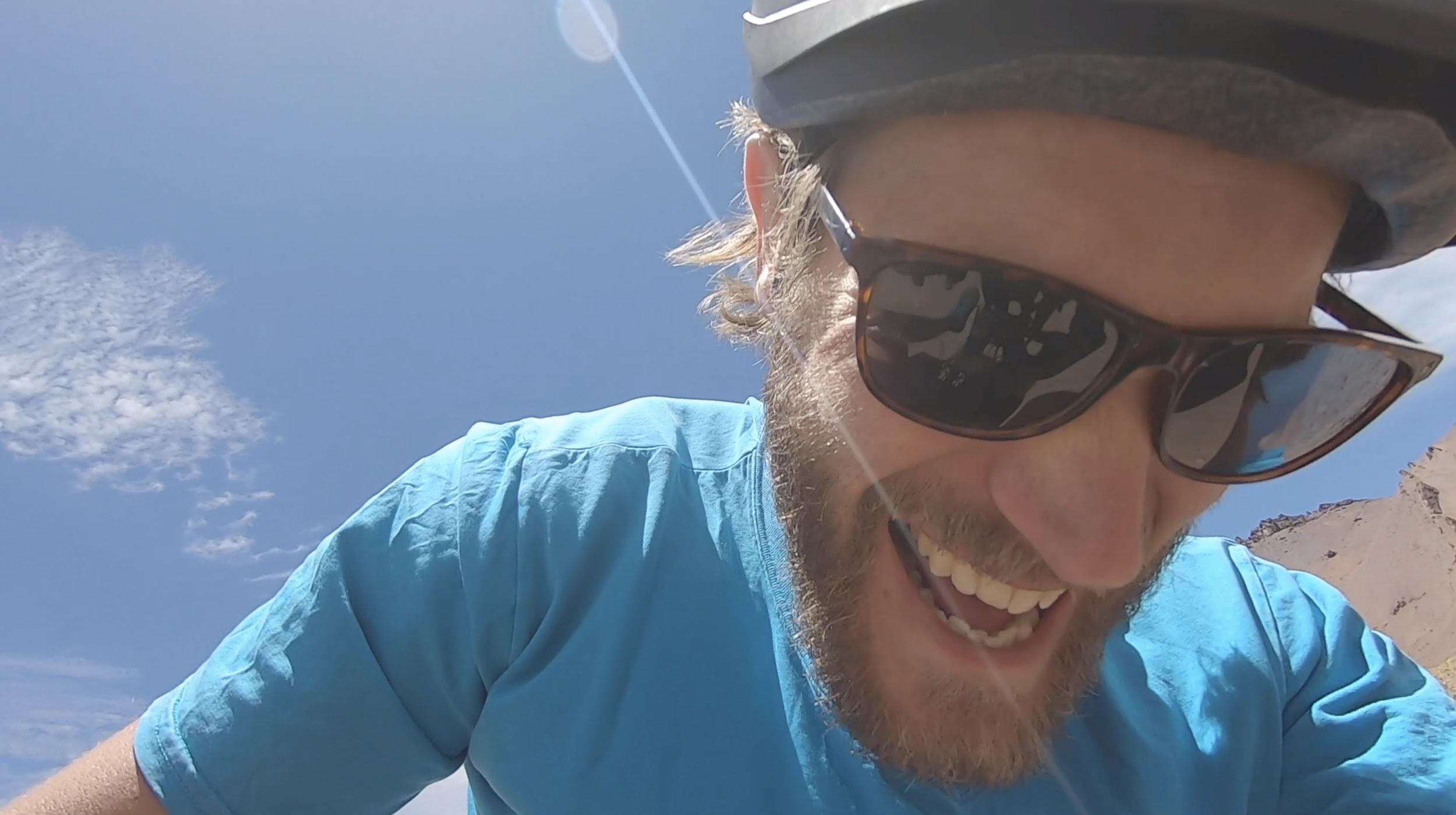
I chuckled heartily out loud. I was watching Netflix’s new movie, ‘Don’t Look Up’, whilst whizzing through Switzerland on an electric train. My best friend had invited me to celebrate the New Year with him and his family at their home in the Swiss Alps. Mountains make me happy, so I leapt at the opportunity. There are very few places on the planet that remain resilient to man’s meddling, but mountainous terrain makes life harder for humans and that’s usually good news for Nature.
Once whilst making a Discovery Channel TV Series I lived in a log cabin nestled deep in the coast mountains of southeast Alaska. I was surrounded by majestic peaks, glistening glaciers, thick forests, and beautiful braided rivers that ran thick with salmon. I had grizzly bears for neighbours. It was epic!
However, staring out of the train window gloomy thick fog hid my much-loved mountains from view. It was as if they didn’t exist. I was sad not to see their beauty immediately, but I knew they were there. I flipped open my laptop and pipped for some movie magic instead.
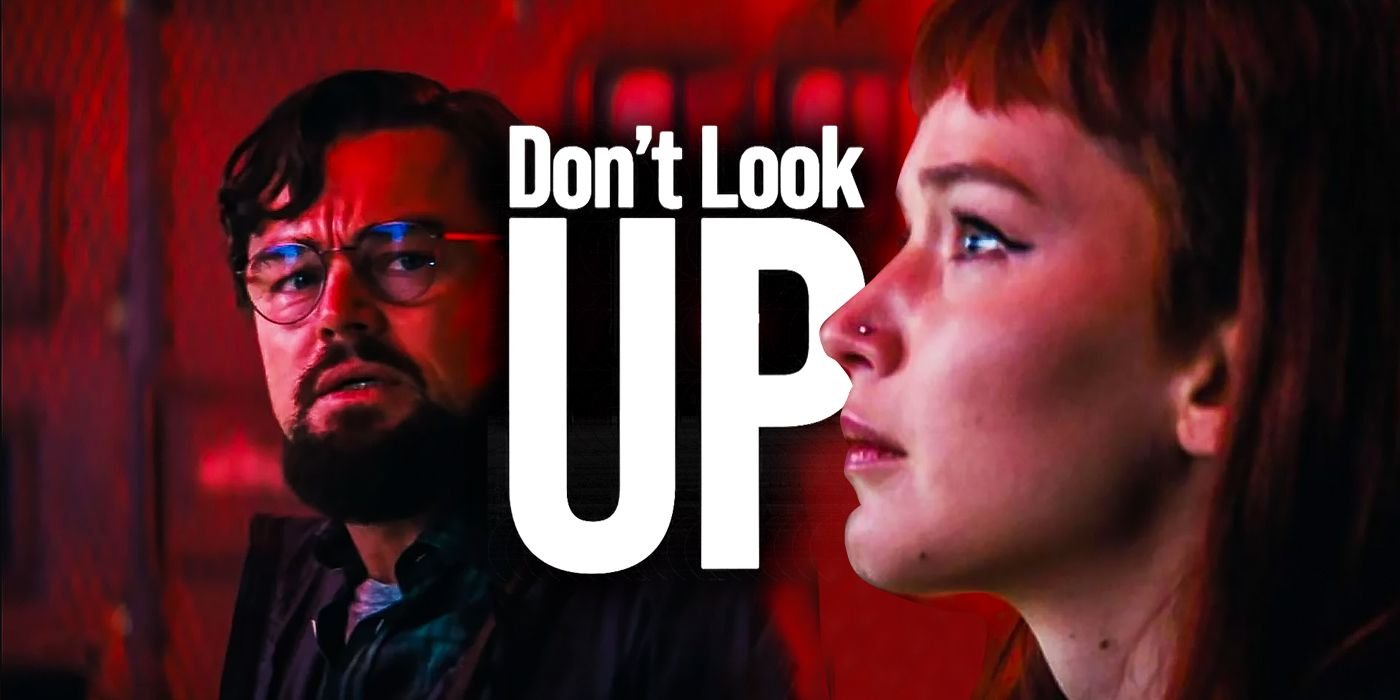
‘Don’t Look Up’ is the star-studded new film by director, Adam McKay, and writer, David Sirota, satirising the world’s dismal inability to act on the climate crisis with a fictional tale about how America responds to a giant ‘planet killing’ comet hurtling towards Earth.
The story starts with Jennifer Lawrence as Michigan State University Astronomer, Kate Dibiasky, discovering a comet. However, the jubilation of Kate’s discovery is quickly cut short when Leonardo DiCaprio’s character, Dr Randall Mindy, calculates that this comet will collide with Earth in only 6 months’ time. Not good. Worse still, it’s even bigger than the asteroid that wiped out the dinosaurs so if humanity doesn’t figure out a way to stop it then the world will end.
The comedy kicks off when Dr Mindy and Kate deliver their apocalyptic news to the US President, portrayed by Meryl Streep, who distracted by mid-term election troubles decides to kick the comet can down the road, to “sit tight and assess”. Shenanigans ensue as the mystified scientists struggle to get the news out through the mainstream media which is much more concerned with celebrity dating gossip than planet killing comets.
‘Don’t Look Up’ is ridiculous and had me in stitches. The unwitting Swiss folk on my train must have thought I’d lost the plot. Unfortunately though for me the movie also rings alarmingly true.
My name is James Levelle and I’m an adventurer and filmmaker dedicated to telling stories that share extraordinary ways of seeing the world that can positively engage audiences and inspire people into enthusiastic action. I’ve found this to be quite challenging…
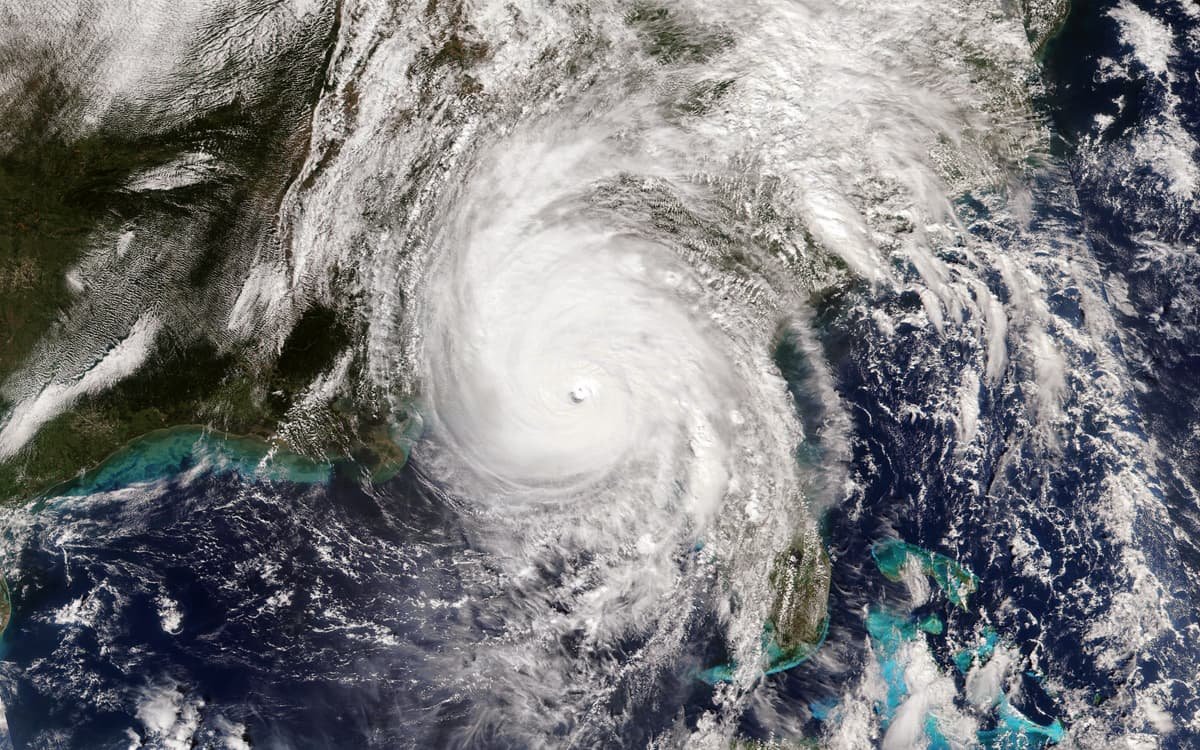
Satellite image of Hurricane Michael, by NASA Goddard Photo and Video, licensed CC-by-2.0
When it comes to apocalyptic experiences, I haven’t yet wrestled with a planet killing comet, but I did very nearly die in the third most powerful hurricane to ever hit the continental USA whilst making a documentary series for the BBC about cyclones. This cyclone, Hurricane Michael, struck the Florida coastline harder and faster than anyone predicted, catching me out in the open, miles from shelter.
Some terrifying trivia: major hurricanes can unleash as much power as 10,000 nuclear bombs. By comparison the asteroid in ‘Don’t Look Up’ would release as much energy as several million nukes so whilst a category 5 cyclone can’t compete with that, my situation was no less deadly.
In Florida, federal emergency services buildings, such as fire stations, are built to be hurricane-proof, but ‘Michael’ was a full-blown maniac and ripped the roof off.
The engine of my pickup truck roared furiously powering me through the 150mph winds that were snapping trees like matchsticks, sending power pylons crashing down around me and razing steel-reinforced concrete buildings to the ground. I got lucky and found a fire station. In Florida, federal emergency services buildings, such as fire stations, are built to be hurricane-proof, but ‘Michael’ was a full-blown maniac and ripped the roof off. I had one last chance. I ran into the garage and jumped into a fire truck. Moments later the garage doors caved in and the hurricane tore through station. Battered on all sides the truck held fast. The hurricane headed on north and I survived.
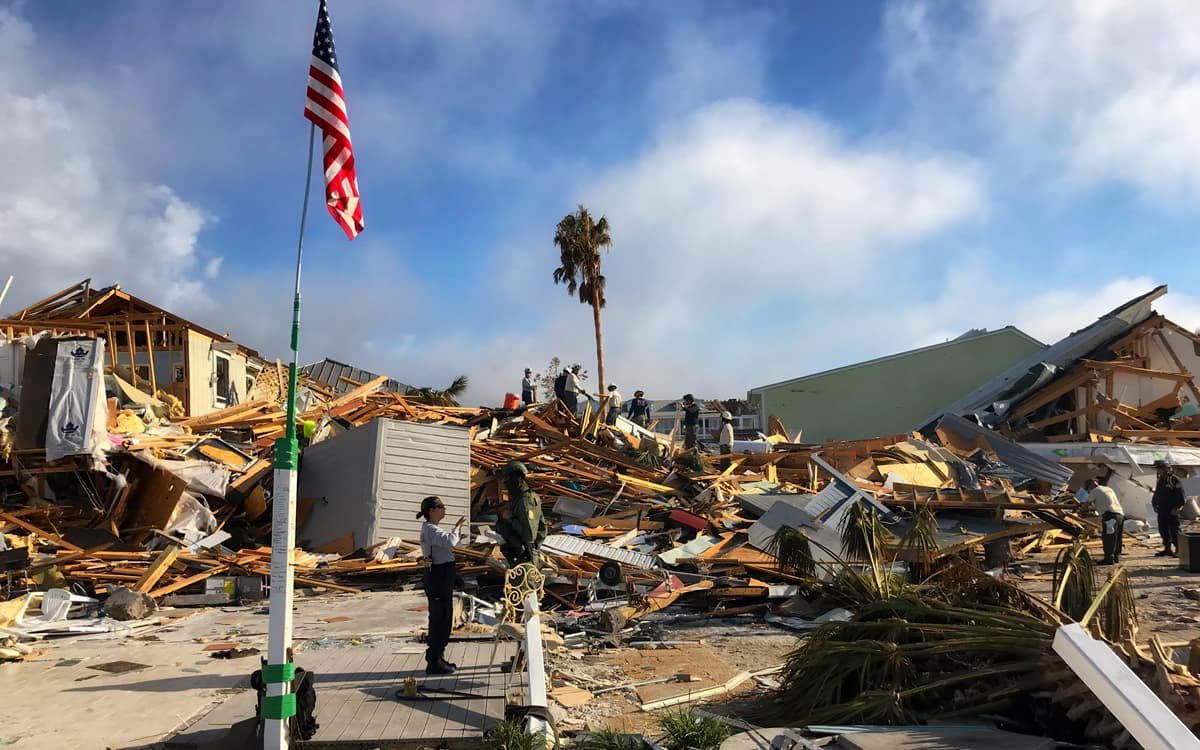
“Search and rescue in Mexico Beach”, photo by Florida Fish and Wildlife Conservation Commission, licensed CC-by-NC-ND-2.0
I was already aware of the disastrous impacts of global warming around the world but the extreme climate chaos I saw and experienced that day rocked me to my core. There is solid scientific consensus now that as the climate crisis escalates extreme weather events such as hurricanes, floods and fires are becoming even more devastating, but no one seems to be listening.
In the movie, ‘Don’t Look Up’, Dr Mindy and Kate struggle to get the message across. They’re scientists. What more can they do than present people with the scientific fact that a comet threatens to wipe out life on Earth? I’m not a scientist but after damn near dying in that hurricane I needed to know what more I could do the communicate the urgency of the climate breakdown. The question was what?
Well, I recently completed my most recent documentary adventure, ‘Race For The Future’, for which I journeyed from the UK, half way across the world, on a mission to amplify the voices of young people by videoing their climate messages and delivering them in film to the United Nations Climate Conference in Chile, South America. And my challenge was to travel the 9,000 miles over land and sea… fossil fuel free.
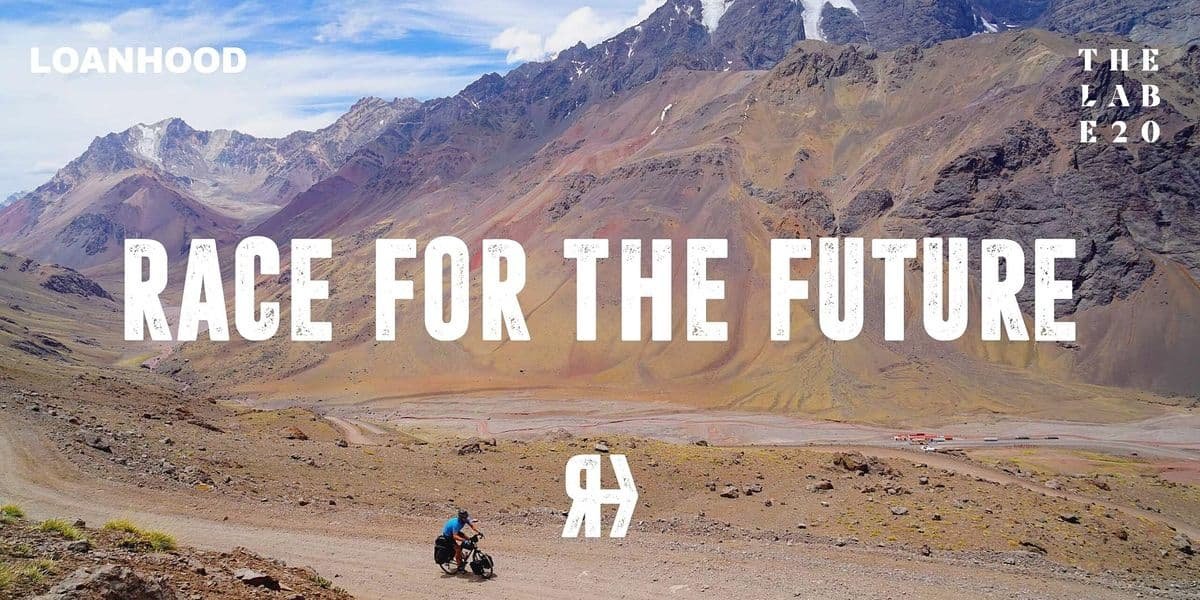
‘Race For The Future’ was the most gruelling but inspiring adventure of my life. It makes for a dramatic, fun and super uplifting documentary but I recently received feedback from a couple of TV channels saying they won’t broadcast it because they don’t think that climate change rates with their audience.
This is no new problem for climate activists. Veteran environmentalist, George Monbiot, recently wrote:
“Those seeking to sound the alarm… soon hit the barrier that stands between us and the people we are trying to reach, a barrier called the media. With a few notable exceptions, the sector that should facilitate communication thwarts it.”
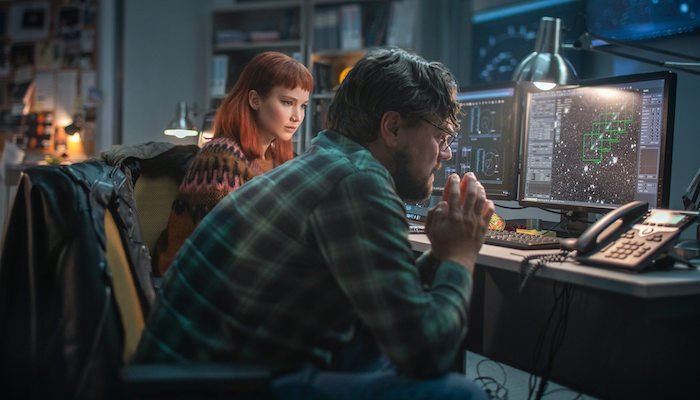
For me, the utter frustration felt by Kate and Dr Mindy in ‘Don’t Look Up’ is painfully real. In the movie, President Orlean does eventually decide to combat the comet but only because her political career is threatened by a sex scandal. She rallies the nation around the asteroid threat which creates the political distraction she needs and boosts her approval ratings.
The President launches her dramatic nuclear attack on the comet but as the missiles rocket out of Earth’s orbit, Peter Isherwell, a billionaire tech mogul and Orleans’s top political donor, waltzes into mission control. After a private word with the President the mission is mysteriously aborted. It turns out that the awkward Isherwell, played by the brilliant Mark Rylance, has discovered the comet is jam packed full of rare earth elements that he believes his, as yet untested, space age technology can exploit by breaking up the asteroid in space and recovering the fractured pieces from the ocean.
A massive misinformation and propaganda campaign soon follows claiming the comet and its rare earth elements will create countless jobs and wealth for everyone. If successful, Isherwell, the President and their cronies will certainly get filthy rich but the same is unlikely for ordinary folk. Either way, long before Isherwell’s attempt to crack the asteroid it is society that fractures and rapidly splits apart. ‘Republicanesque’ fans of the president scream ‘Don’t Look Up’ whilst the opposing ‘Democrat-like’ liberals chant ‘Just Look Up’.
It’s a familiar story and it may seem hopeless to some but, in my eyes, I see a fantastic opportunity to dig a little deeper and deconstruct the ‘illusion’ of disconnection this movie so effectively lampoons.
Unable to debate and consciously converse, the characters in ‘Don’t Look Up’ are a bunch of bloody morons oblivious to what’s actually happening in the world. Pernicious polarisation works the same way with climate change. We see only what we don’t agree with and are blind to all the fundamental needs and wants that connect us all. The fact is that neither the climate nor the fictional comet care what we think we see or don’t see; they continue on a deadly collision course destined to deliver disaster to everyone in the end.
Peter Isherwell launches his high-risk last minute comet cracking plan. It fails. The planet and humanity are doomed.
Dr Mindy brings his colleague Kate and friends to his family home for a last supper. The comet strikes Earth and as the apocalyptic shockwaves rattle towards their dining table Mindy muses out loud, “We really did have everything, didn’t we? I mean, when you think about it.” And with that they are all blown to smithereens and the world ends.
I thought ‘Don’t Look Up’ was great fun. I laughed a lot and it felt good. You’ve got to laugh, right? That’s why comedy is so vital for a healthy society. We’ve got to be able to look at ourselves in the mirror, to recognise our crazy human ways and laugh. But if we’re to avoid the end of the world as we know it and solve a problem as polarised, and overwhelmingly massive as the climate crisis we must not only recognise our foolish ways, but we must also find fun ways to motivate change.
My 9,000-mile fossil fuel free travel challenge to Chile was massively motivating. If ever I feel down, I need only think of that incredible interconnected network of young people enthusiastically acting to affect change. Their vital imaginations, unblinded by adult cynicism, simply refuse to accept the narrowminded, negative and apathetic perspective that ‘life experience’ so often conditions into us.
Children may lack experience, but I believe that’s exactly why they see most clearly. They helped me remember the importance of focusing on what’s in front of you, of working with whatever you can, and then charging ahead making the positive changes to better your life, the lives of those around you, and the planet.
Almost anything is possible if you really focus on your goal, put the work in and most crucially, deeply believe in the outcome. The success of ‘Race For The Future’ is testament to this way of seeing the world.
My Swiss train pulled into the station. The depressing grey veil of cloud had disappeared, and I could now see the spectacular snow-capped Alps gleaming with the last of the sun’s golden light. My spirits soared at the sight of them. The miserable mist had completely barred them from view before, but that didn’t mean they weren’t there.
All I had needed to clear my vision was to climb a little higher and ‘Just Look Up’.
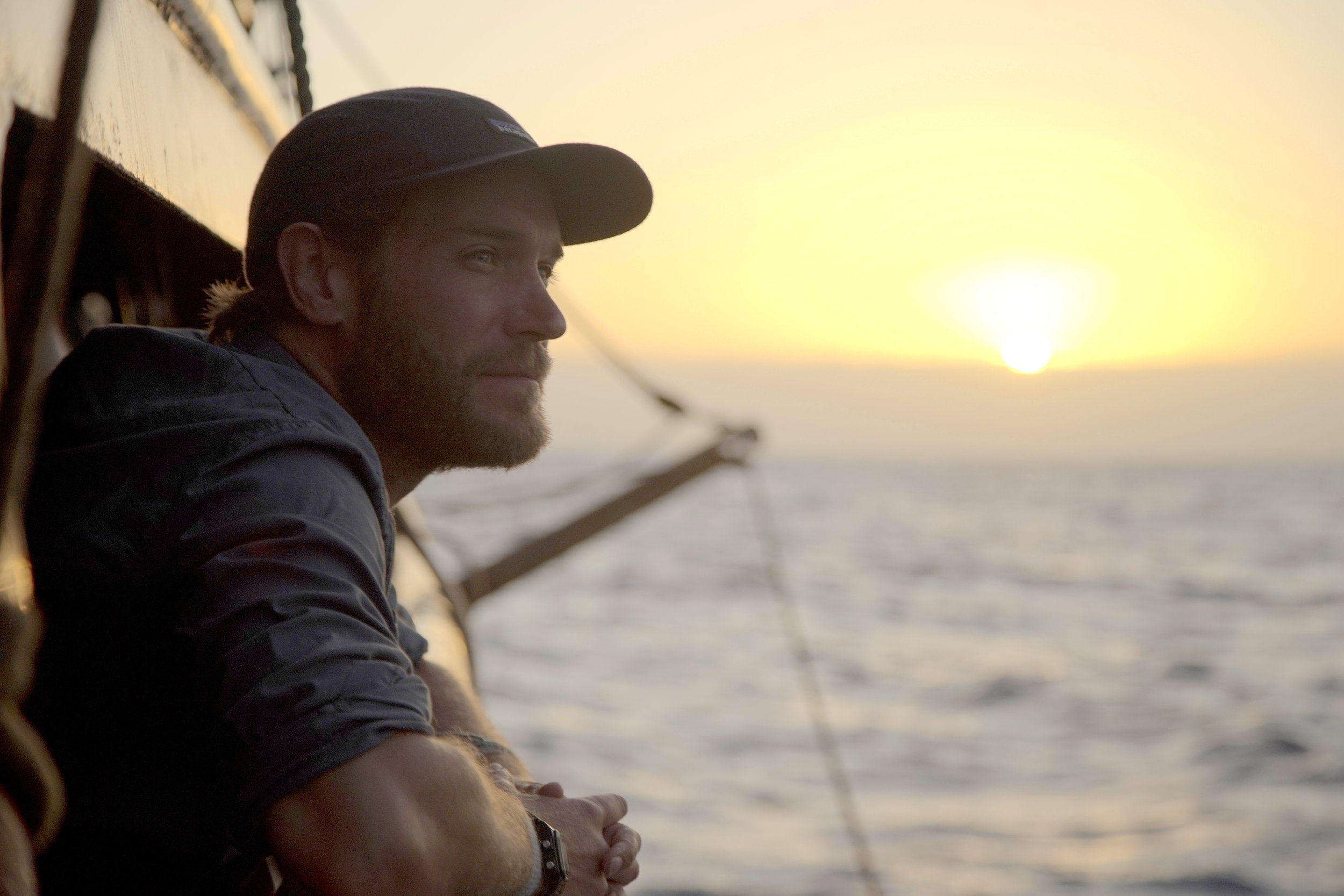

Ecoflix is jointly owned by The Ecoflix Foundation US and The Ecoflix Foundation UK. Ecoflix Foundation US is a registered 501(c)(3) in the United States of America. 501(c)(3): C2568417. Registered address: 24730 Long Valley Road, Hidden Hills, LA, CA 91302 USA Ecoflix Foundation UK is a registered charity (number 1200441). Registered address: Aston House, Redburn Road, Newcastle Upon Tyne, NE5 1NB